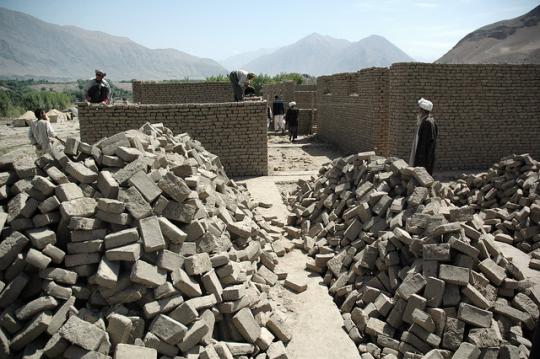
While inroads have been made in many countries, some of the challenges that arise when opening, consuming and sharing data in fragile states and situations are similar to those arise in any context. In many countries, data scarcity, quality of source, and data capacity and literacy make it difficult to not only publish data, but also make it accessible to broad audiences.
The following additional challenges (and in some cases, solutions) come to light in the fragile context:
- Security: In situations where security is a concern, collecting data becomes near in impossible and publishing data, risky. For example, because development projects still need to be monitored, Afghanistan has leveraged local contractors and mobile technology to reach remote locations. While this has led to a more rich view of development outcomes, there is still hesitation to publish precise location data to preserve security for communities, government entities and the World Bank.
- Policy: While the will may be there from the governments’ and from the public's standpoints to make information more widely available, laws and policies aren't always in line.
- Inclusion: There the risk is that the open data revolution will be confined to small group, creating further inequalities between those with and those without access to data, and the capacity to interpret it. There is a need to invite and engage public at large, including outside of urban environments. YouKnow in Palestine and Code for Nepal both educate and leverage local media to disseminate information via traditional and new media approaches. YouKnow's "Mapping Her" campaign is designed to crowdsource information about abuse and exploitation of women, and leverage SMS technology to educate women and girls about laws designed to protect them via widely used mobile phones.
Development practitioners, advocates and governments must take care not to inadvertently contribute to further exclusion of already marginalized populations.
RELATED blog post: How does open data play out in fragile states
A final point vis-a-vis the Bank's role in this agenda. Colleagues expressed that the opportunities around open data will only become more important going forward and the Bank and the development community should show leadership and be leaders and champions in the open data space.
The above represent a handful of cases and approaches. We would love to hear from you about your work in this space and approaches you've taken toward leveraging open data to meet your program's development objectives. Complete the short Operational Use of Open Data survey at: http://bit.ly/OpenDataOps. We'll continue to publish results frequently (as open data).
Are you implementing open governance and open data efforts in a fragile, conflict or post-conflict situation? Share your experiences, successes and challenges.
-------------------------------------------------------------
Global Media Development program is a partnership-driven initiative which focuses on information and media as drivers of good governance.
The program facilitates both South-South and North-South knowledge exchanges by serving as a space for experts and practitioners to share investigative journalism practices (with a focus on data journalism) and strategies to overcome obstacles to effective reporting on priority development topics.



Join the Conversation